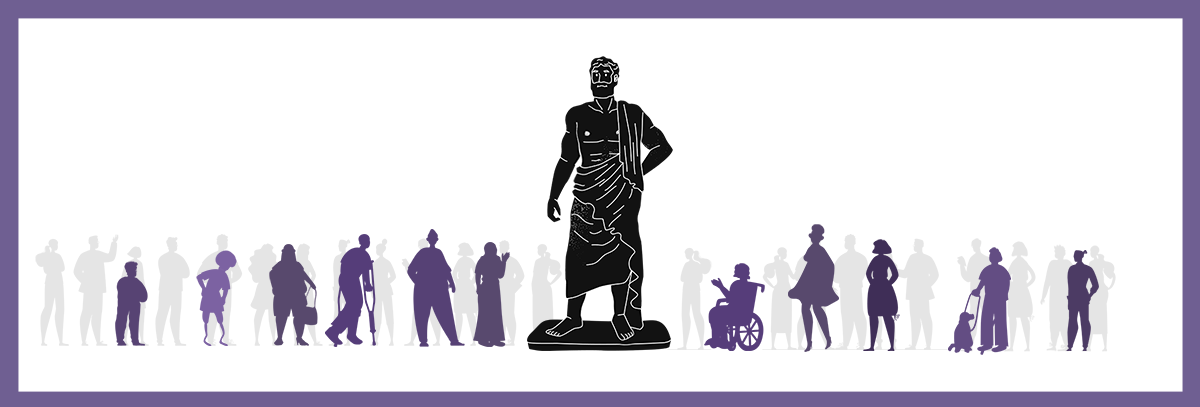2 Framing Concepts: Ableism

Ableism is a system of oppression where disabled people are overlooked, dismissed, or thought to be ‘less-than’ in some way, either covertly (which may manifest in unconscious biases) or explicitly (which can be found in institutional policies and laws). Fiona Kumari Campbell, a disability studies researcher and theorist, defines ableism as “a network of beliefs, processes and practices that produces a particular kind of self and body (the corporeal standard) that is projected as perfect and species-typical, and therefore essential and fully human. Disability then is cast as a diminished state of being human” (2009).
Ableism can manifest in both violent and insidious ways. It is an often underexamined system of oppression, which allows it to be ever-present in quotidian activities. According to Talia A. Lewis, an attorney, organizer, and educator in the US, ableism as an axis of oppression affects everyone – it “plays a leading role in how we frame, construct, and respond to race, class, gender, sexual orientation, ethnicity, nationality, criminal status, disability, and countless other identities… it frames every other marginalized identity” (2023). As the crux of ableism, some people hold the foundational and false belief that people with disabilities matter less than non-disabled people because they think (among other things) that:
- People with disabilities always need help from non-disabled people, who are inherently more capable, or;
- Certain movements, senses, or thought processes are required for everyday activities, such as:
- Working
- Caring for homes and families
- Making friends and enjoying a meaningful social life
To both counter these incorrect narratives and reject the false dichotomy between perceived healthy and disabled bodies, we present the idea that non-disabled people are in a temporary state of health, or pre-disabled. This reframing of disability as a positionality that is in flux and not fixed (just like age, socioeconomic position, gender, and other aspects of identity are or can be) is important when considering how to implement accommodations.
The authors recommend Queen’s’ HREO training modules on ableism and accessible instruction to learn more about ableism.

